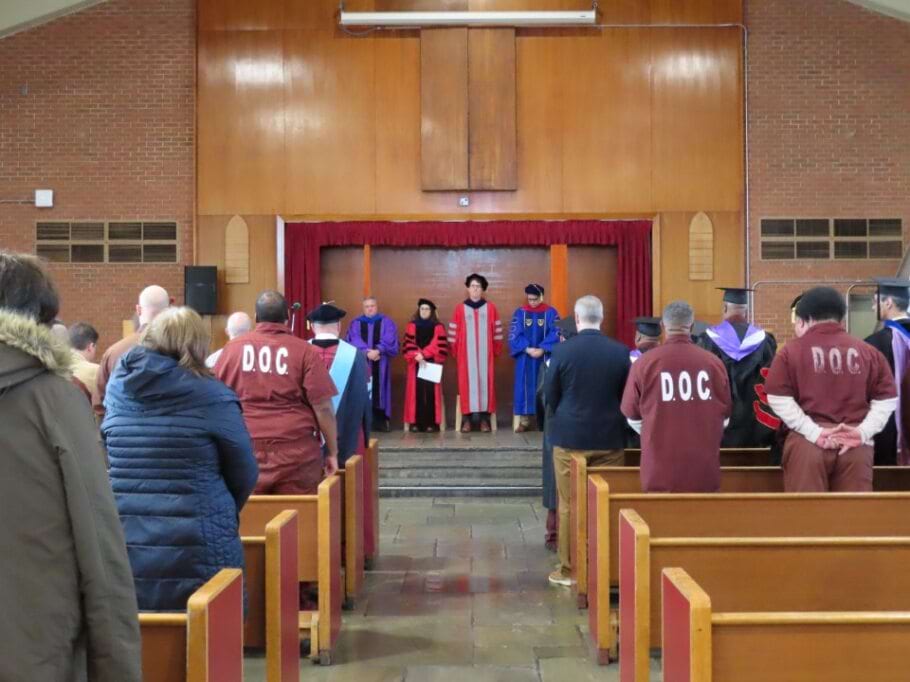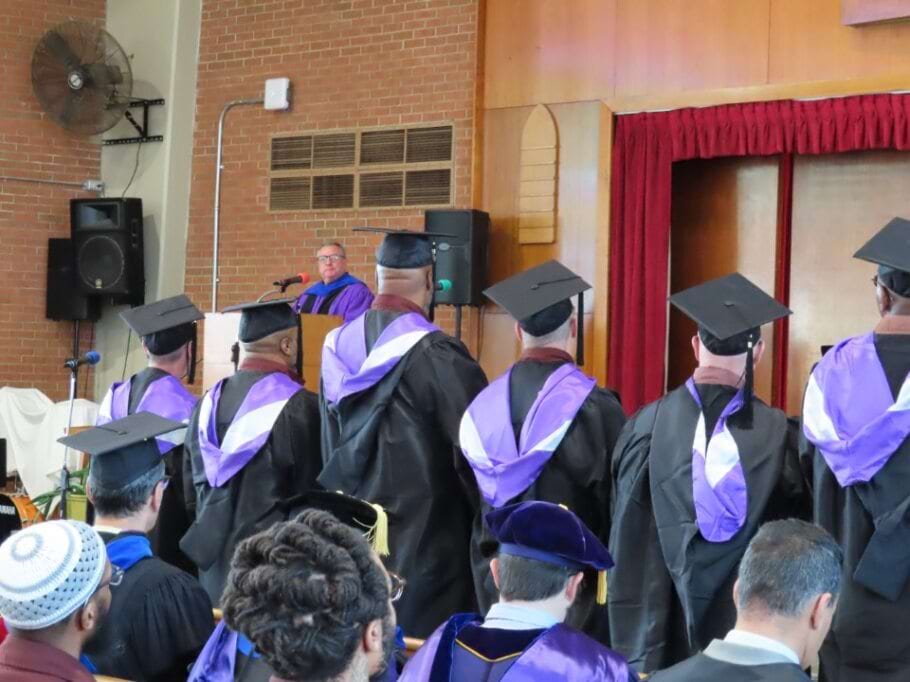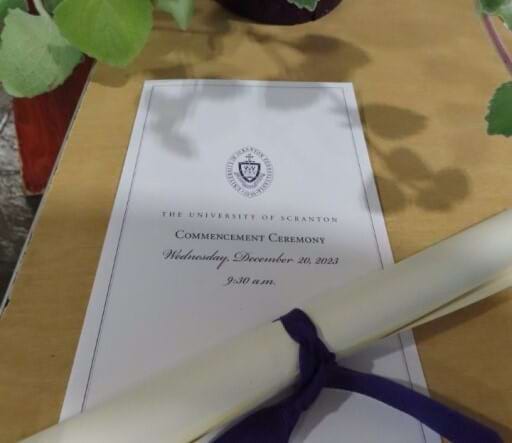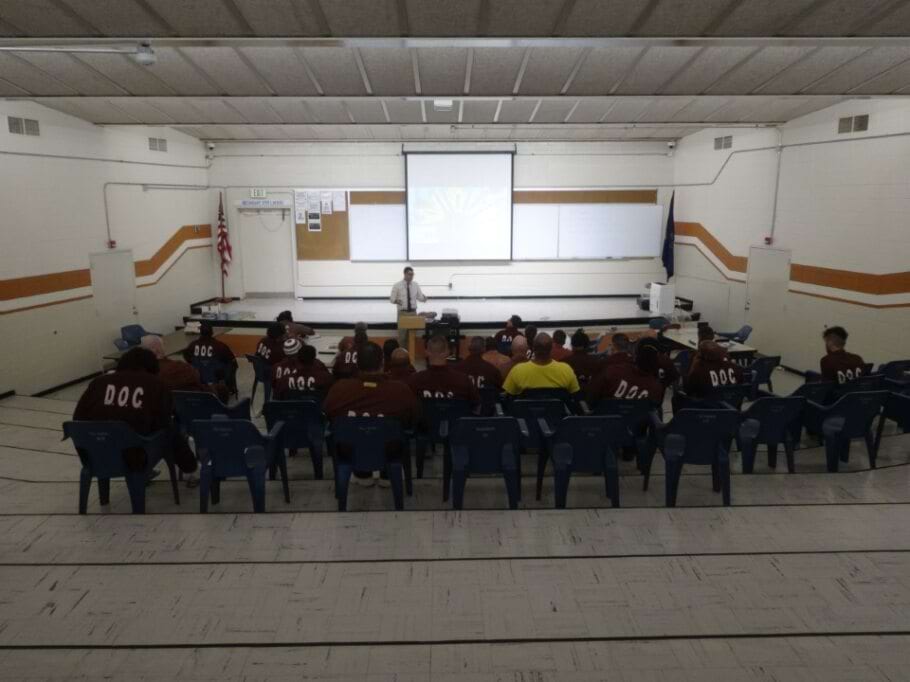The University of Scranton Prison Education Program
Overview
The University of Scranton Prison Education Program affords the opportunity for incarcerated students in the PA Department of Corrections to earn an Associate of Arts degree in Liberal Studies in about three years.
This program is an expression of the Jesuit mission to extend quality higher education as widely as possible and to engage in works of reconciliation and justice with the poor and marginalized. This program is part of the Jesuit Prison Education Network (JPEN).
Graduates
The first cohort of nine students graduated in December 2023, after 2.5 years and 20 courses of study at the State Correctional Institution at Dallas. Three of the graduates were accepted to continue their education at Villanova’s program at the State Correctional Institution at Phoenix. The second cohort of 14 students is scheduled to graduate in December 2024. Below are photos of the 2023 graduation ceremony and a photo of a class in session.
At a another nearby prison, the State Correctional Institution at Waymart, various faculty have also offered several one-time lectures in diverse disciplines (physics, theology, literature) to interested learners.
Future admissions for third cohort will be conducted during the second half of 2024, to begin courses in January 2025.




Curriculum
The associate's degree involves the 20 general education courses (60 credit hours) that constitute the foundation for any bachelor’s degree (120 credit hours). Courses are held year-round, in person, meeting weekly.
Students enrolled in the program take courses in:
- Writing
- Public Speaking
- Quantitative Reasoning
- Social Sciences
- Philosophy
- Natural Sciences
- Theology
To see a detailed explanation of the courses listed see this link.
Program Funding
Funding for the program comes through Pell funding, grants, and University funds. There is a growing bipartisan interest in these initiatives because, in addition to endowing students with intellectual training, a greater sense of meaning, dignity, and orientation, it also dramatically reduces recidivism and improves prison conditions. The think tank Vera, for example, has found that for every dollar invested in college behind bars, the public saves about four to five dollars.





